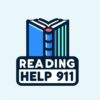Beginning Readers: Declining National Reading Scores
In recent years, the declining national reading scores among kindergarten students have raised concerns among educators and parents alike. As we navigate this challenge, it is crucial for parents to play an active role in fostering their child’s beginning readers skills. In this article, we will explore the issue at hand and provide actionable suggestions to ensure your kindergarten student becomes a proficient reader by third grade. Let’s embark on the journey of shaping the future of our young readers.
Understanding the Problem: The declining national reading scores underscore the need for a collective effort to address literacy gaps from an early age. As parents, being aware of the challenges is the first step towards finding effective solutions. Research indicates that establishing a strong foundation in reading during the kindergarten years significantly contributes to a child’s overall academic success.
Actionable Strategies for Parents:
- Create a Print-Rich Environment: Surround your child with reading materials at home. From storybooks to labels on household items, exposure to written words enhances early literacy skills. Use keywords like “beginning readers” to find age-appropriate books that cater to your child’s developmental stage.
- Daily Reading Routine: Establish a consistent reading routine at home. Set aside dedicated time each day for reading together. This not only strengthens the parent-child bond but also reinforces the importance of reading as a pleasurable activity. Search for “reading routine for beginning readers” to discover creative ideas.
- Interactive Learning Tools: Leverage technology to make learning engaging. Educational apps and online resources can provide interactive experiences that make the learning process enjoyable for your child. Look for apps that focus on “early literacy skills” and “phonics for kindergarten.”
- Encourage Vocabulary Building: Actively engage in conversations with your child to enhance their vocabulary. Encourage them to express themselves, ask questions, and share their thoughts. A rich vocabulary forms the basis for strong reading comprehension skills.
- Utilize Reading Programs: Enroll your child in local or online reading programs designed for kindergarten students. These programs often incorporate a structured curriculum that targets foundational reading skills. Search for programs with keywords such as “beginning readers program” or “early literacy intervention.”
- Collaborate with Educators: Maintain open communication with your child’s kindergarten teacher. Regularly inquire about your child’s progress in reading and seek recommendations for additional support if needed. Collaboration between parents and educators is essential for a child’s academic success.
Conclusion: As parents, we play a pivotal role in shaping our children’s academic journey, especially when it comes to reading proficiency. By implementing these strategies and staying involved in our child’s education, we can contribute to reversing the trend of declining national reading scores. Together, let’s ensure that our kindergarten students not only learn to read but develop a lifelong love for the written word.
Beginning Readers: Declining National Reading Scores Read More »
